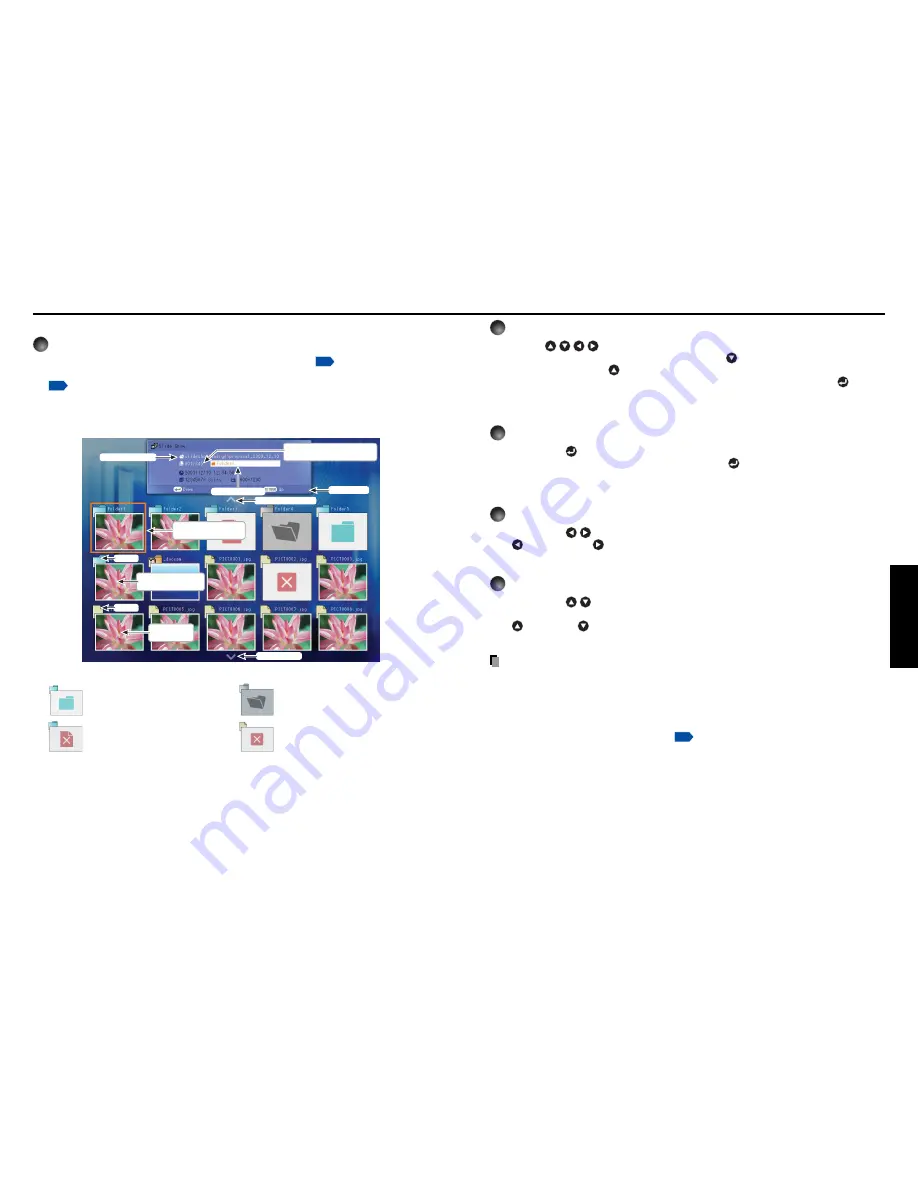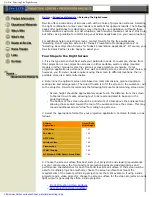
47
Operations
46
Projecting images stored in a memory PC card (Continued)
2
Searching for a target file
• Use the
buttons to move the orange frame over the desired file or folder.
• If there are multiple pages of thumbnails, click the
button on the bottom row to go to
the next page, and the
button on the top row to go to the previous page.
• To open a folder, move the orange frame to the desired folder and press the
button.
You can navigate down up to 5 levels using the same procedure.
Pressing the RETURN button returns you to the next or other upper level folder.
3
Displaying slides
• Pressing the
button with a file selected displays the image in that file only in full-
screen view on the screen as a slide. Pressing the
button enters the automatic play
mode.
• To return to the thumbnail list display screen, press the RETURN button.
4
Changing slides
Pressing the
buttons with a slide displayed changes slides.
(
: previous slide;
: next slide. These buttons are not available during an automatic
play.)
5
Rotating a slide
Pressing the
buttons with a slide displayed rotates the slide 90 degrees. The
rotation information is preserved as long as you remain in the current folder.
(
: Rotate left;
: Rotate right. These buttons are not available during an automatic
play.)
Notes
• The thumbnail display order and slide order goes in order from shortest file name to
longest. If two file names have the same number of characters, they are ordered
numerically if numbers are used in the file name, and alphabetically otherwise.
• It is possible to give presentations without using a computer by converting presentations
created with Microsoft
®
PowerPoint
®
into JPEG files using the JPEG Conversion Tool,
and storing them on a memory PC card.
p.57
Note, however, that functions such as animation effects and hyperlinks cannot be used,
so it should be tested before the actual presentation.
Indicates that there is no data to
be displayed in the folder.
Indicates that an unsupported
JPEG or other file is present.
Indicates that only folders are
inside the folder.
Indicates that the JPEG or other
file is not supported.
■
Playing a slide show from a thumbnail list
1
Plugging a memory PC card.
If you set Auto. demo to Off in “Setting slideshow options”
p.43
and plug a memory
PC card into the PC card slot according to the procedure in “Mounting a PC card”
p.21
, the projector starts loading data from the PC card to display a thumbnail list on
the screen when the projector switches to the wireless/card input mode. The screenshot
below is an example of the thumbnail list. The actual list will vary depending on the data
stored on your memory PC card.
Thumbnail image of
first file in folder
Folder
Thumbnail
image of file
File
Previous page exists
Current File Name
Current Folder Name
Operation Guide
Orange frame: currently
selected file or folder
Thumbnail list number
Current list No./Total number of lists
Next page exists
Symbols in the thumbnail list
Summary of Contents for TDP-TW90
Page 37: ......














































